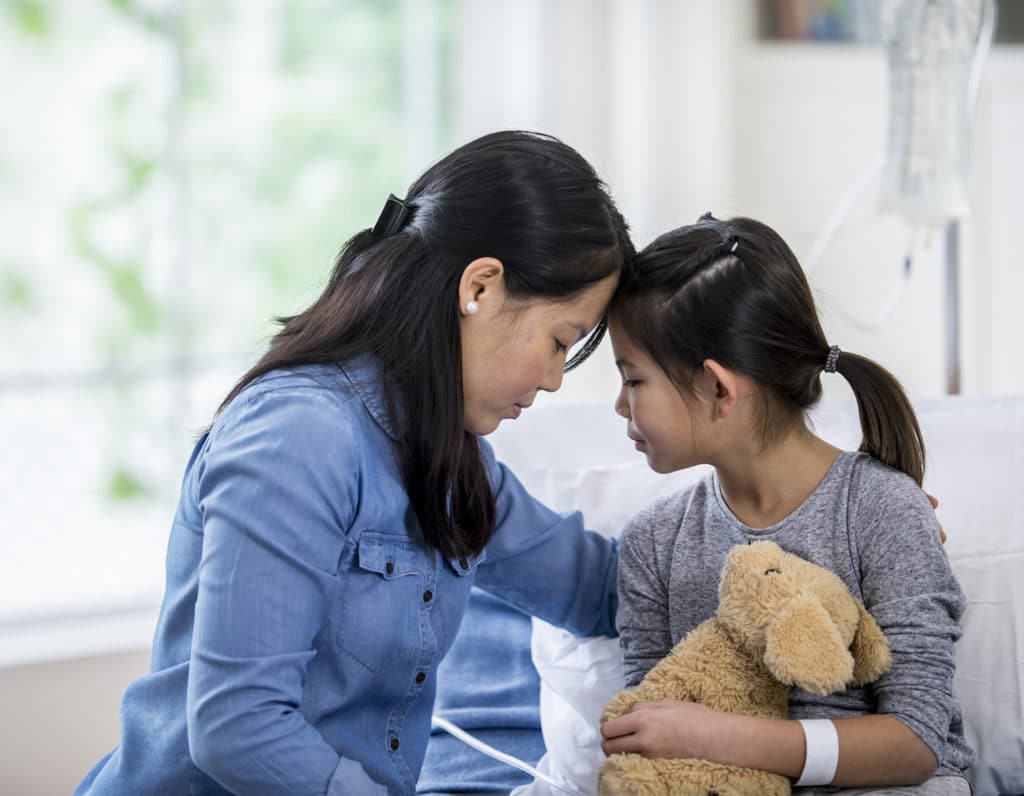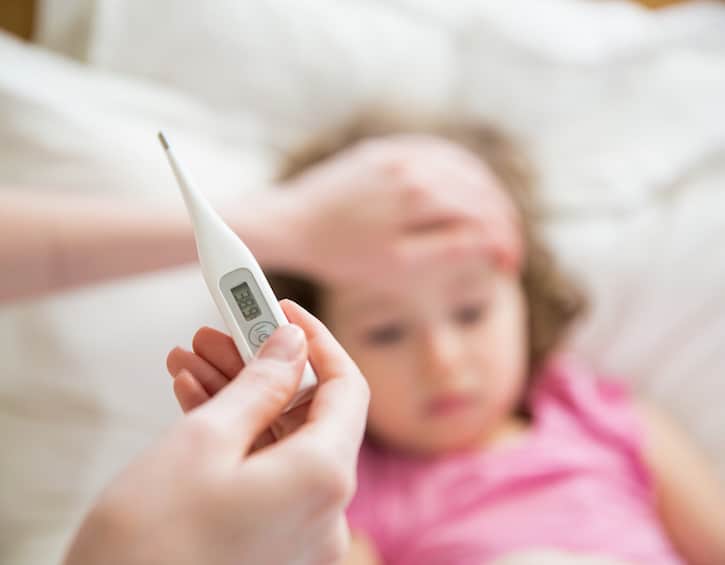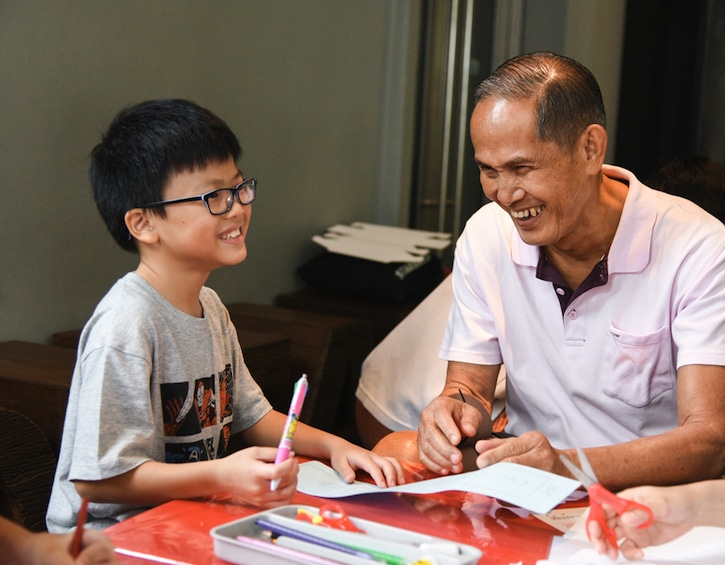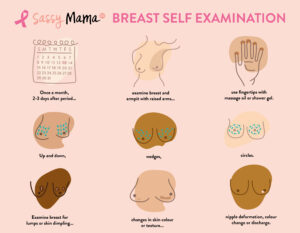
 Post Category - ParentingParenting
Post Category - ParentingParenting Post Category - WellnessWellness
Post Category - WellnessWellnessA doctor and educator explains the MOH’s policies around parent-child quarantine, and shares tips on preschool distance learning
As the number of Coronavirus / Covid-19 cases in Singapore have risen in the past couple weeks, tens of thousands of people have been placed on Stay-Home Notice and even in Quarantine. With the health and educational landscape in Singapore quickly shifting under our feet, we’ve once again turned to Dr Elaine Kim, the co-founder and CEO of Trehaus School, to get to grips with the latest policies being implemented by MOM and MOH, as well as to find out what preschools are planning should they follow international schools and be closed in the coming weeks (because “distance learning” and toddlers don’t really seem to mix!). We also spoke to Patrick Chang of Simply Wills about the importance of writing a Singapore Will.
**UPDATE (31 March 2020)**
Since the publication of this article on 27 March, Sassy Mama has received feedback from two Singapore family lawyers, Shu Mei Hoon[1] and Yue-En Chong [2] that readers should exercise caution on executing and relying upon a ‘Letter of Temporary Guardianship’ with regards to anticipating a quarantine / hospitalisation situation, as under current Singapore legislation (i.e. Guardianship of Infants Act), Guardianship may only be conferred to a 3rd party only upon the death of either or both parents by way of a deed or a will. This is unlike some states in the United States, where ‘Temporary Guardianship’ is expressly provided by law.
Currently, it is unclear how the Courts in Singapore would recognise a temporary guardianship “letter” as conferring 3rd parties appointed by the parent/parents with the legal authority to exercise responsibility and care over a child, especially if the parents are alive and are simply in quarantine, and are still able to give instructions to a third party on the care of their child/children. The underpinning legal position, as per a recent High Court decision, is that “parental responsibility is not a voluntarily delegable responsibility”. See below for further clarification.
If a child is diagnosed with COVID-19 and placed in quarantine, will a parent be able to stay with them?
In these difficult times, the health and wellbeing of our most vulnerable populations must come first. To ensure a smooth, trauma-free treatment, young children who are infected with COVID-19 may have one parent stay with them at the hospital.
Similarly, where quarantine orders are issued for infants and young children, they will not be separated from their caregivers.
According to KK Women’s and Children’s Hospital, where children and infants will be treated and quarantined, if a parent and child are both infected but the parent doesn’t require any medical support, they can stay with the child in that hospital (they will only be able to leave the isolation room when the swabs are negative for both patients). However if that parent requires medical support (eg oxygyen) they will be transferred to the NCID (in which ideally the other parent will be able to stay with the child).
What happens if both parents are quarantined with COVID-19? Is a helper able to stay at home with the child?
If both parents of a child are diagnosed with COVID-19, and there are no other responsible caregivers, the Ministry of Social & Family Development will deploy resources to ensure that no child is left uncared for at this critical time. This will be managed on a case-by-case basis, as how children are looked after depends on each family’s circumstances and support system.
As far as possible, children will be cared for at home, so that they are comfortable and secure despite any disruption to their families and schools.
According to Shu Mei Hoon and Yue-En Chong, if the parent/parents are incapable of providing instructions to a third party, there are specific court applications that can be taken out by lawyers for the court to order a third party to care for the children. In such a case, Ms Hoon and Mr Chong opine that execution of a deed or an agreement (which will involve the signatures of all parties concerned) – as opposed to a “letter” – may provide a clear articulation of the parent/parents’ intentions of appointing a 3rd party to care for their children in the event of quarantine / hospitalisation, especially if the matter is brought before the court. Both lawyers further opine that the Court hold overall discretion in overriding the arrangements contained within such documents, if it is not in the child’s best interests.
Furthermore, whilst Ms Hoon and Mr Chong appreciate that some readers may not have family members or close friends in Singapore, they question whether the naming of a foreign domestic worker as a ‘Temporary Guardian’ would be in accordance with Ministry of Manpower’s regulations, and conditions of the FDW work permit, given that a foreign domestic worker may only perform household and domestic duties. Furthermore, it is worth noting that upon the potential death of an employer, a helper’s work pass may be cancelled or revoked, assuming her employment is not transferred to another employer.
While it is always best to be prepared, given the fluidity of the situation, we suggest seeking the advice of a Singapore-qualified lawyer before signing any document regarding guardianship / temporary guardianship, and we note from our conversation with Ms Hoon and Mr Chong that single, separated or divorced parents may also face other issues which must also be considered.
It is advised to seek the advice of a Singapore-qualified lawyer, as the Covid-19 situation is fluid and rapidly changing, and each family’s individual circumstances will vary and nothing may be truly ironclad.
According to Patrick Chang of Simply Wills, even if you are an expat and you have written a Will in your home country, writing up a separate one in Singapore can expedite processes, as every country has its own rules and procedures. Simply Wills provides a Will writing service, including a temporary guardianship letter, for $300, which is a small price to pay for peace of mind in these stressful times.

Should low-risk patients self-quarantine at home rather than over-burden hospitals? Or here in Singapore is it mandatory to get checked and then be warded?
Currently, patients who test positive for COVID-19 will be admitted to a hospital for timely management of their symptoms, and to strictly isolate them from the community.
Everyone who is showing symptoms of COVID-19, particularly cough and respiratory symptoms and temperature greater than 38 degrees, should seek medical attention quickly, as this helps to isolate the infected and protect the vulnerable.
A GP or Public Health Preparedness Clinic will refer patients that display symptoms of COVID-19 to a hospital for further testing and treatment.
At present there is no shortage of hospital beds, and Singapore is well-prepared should cases peak in the coming weeks.
What is the difference between quarantine, stay-home notice and leave of absence?
Three levels of restriction have been enforced to combat the spread of COVID-19.
All are aimed at social distancing and minimizing contact between high-risk people and the community. The most stringent is a Quarantine Order, where an individual may be confined to their home or a dedicated medical facility. In either case, the quarantined individual is at high risk of infection, and must not be in any physical contact with members of their household. However, household members are not impacted and may leave the home, provided there is no physical contact with the quarantined individual. Breaking a Quarantine Order is a legal offence.
One notch below this is a Stay-Home Notice, which is a precautionary measure taken to isolate possible cases. This restricts the individual from leaving their home, and does not allow any outside visitors to their home. When a Stay-Home Notice is issued, it applies only to the individual – members of their household can leave the home, subject to good hygiene practices. Individuals under a Stay-Home Notice can interact with their families, but must be very careful to prevent spread of any infection. As with Quarantine Orders, a person can be prosecuted for non-compliance with a Stay-Home Notice.
A Leave of Absence allows the individual to leave their home when necessary, provided they take steps to socially distance themselves, and are vigilant about who they contact. They can interact freely with members of their household, and can have visitors to their residence; however, precautions are highly encouraged.
Read more: Is it safe to send my child to school during coronavirus?
Along these lines, if a helper is returning from home leave (or has newly arrived) and is told to follow a stay-home notice, should she stay confined to her room? Or are people generally ok to move freely about the house?
As with any stay-Home Notice, the restrictions apply only to the individual that has travelled. As such, the Foreign Domestic Worker is free to move around her residence and interact with members of the household.
In spite of the above, it is highly advisable to exercise caution for the 14-day period following travel. This might include encouraging the helper to avoid physical contact with pets, children and the rest of the family, as well as being vigilant about personal hygiene and handling of food. Surfaces in the home should also be wiped down and sanitized frequently.
Within a household, it would be highly advisable to separate and avoid contact between persons on a SHN and any elderly members of the family, or members with pre-existing illnesses. Click here to read MOM’s guidelines on SHN for foreign domestic workers.
If preschools are closed, how do you think distance learning can be implemented?
At Trehaus, our endeavor is to provide our young learners with an uninterrupted learning experience, as they thrive on routine and structure. Preschools remain committed to providing as much of their curriculum to students as possible, even on a remote basis.
This will be driven by close cooperation between parents and school, given that hands-on learning is the backbone of early education.
Even though children have been spared the worst of the COVID-19, preschools and schools must prioritise safety. They are committed to doing everything they can to support the community at this challenging time.”
A big part of raising a resilient child is one that is able to adapt to the changing world and also to create the best outcome with the resources presented. As parents, this is the best time to show our little ones (as well as embrace this value head on) what it means to be prepared for whatever life throws at us.
At Trehaus School, our motto is ‘ahead of change’ and just earlier this week, even though schools remain open, Trehaus School children have already received a home learning kit. The kit involves games, puzzles, ingredients for homemade playdough and even slime! Our school teachers will also be connected to families through our tech platform, Little Lives. In the event that school closes, teachers will send home weekly e-learning activities based on our project-based Little Programmes that parents can engage with their children on at home. Teachers will also be sharing the e-book platforms and curated education apps that are age appropriate for that class’ children. In our home learning activities, our curriculum team has designed activities including genres from Music and Movement, creative investigation, academic knowledge and life-skills.

In other countries one of the main explanations for closing schools is to prevent children from spreading the virus to their grandparents and other people who may be more susceptible to the effects of Coronavirus. Given that kids are still attending school here – and that many either live with their grandparents, or spend time with them in a caretaking capacity – are there any precautions or tips for keeping them safe?
Social distancing and great hygiene practices go a long way in protecting the vulnerable.
Good practices at schools is also critical to stemming the tide of infections. At Trehaus, for example, all students have their temperature checked three times a day, and all our teachers ensure that hand washing is thorough and frequent. Further, the school has stepped up its cleaning intervals for this higher-risk period, and all toys are deep cleaned and UV sanitized.
We would discourage excessive physical contact between school going children and the elderly. Hugging, touching, feeding and bathing young children should be undertaken by other members of the household to the extent possible. Great personal hygiene, frequent hand washing, especially before handling or eating food, as well as minimizing touching one’s face are all good practices that will help reduce the risk of infection even among members of the same household.
Household hygiene and good indoor ventilation is another critical line of defense against the virus. All surfaces, light switches, remote controls, door handles must be wiped at regular intervals, with diluted household bleach or a solution containing at least 70% alcohol.
Singapore is doing its utmost to minimize disruption to daily life, including keeping schools open to the extent possible. The best defense against spread of the virus is responsible behavior at the individual and community level.
Visit the following government links for even more information:
Ministry of Health Covid-19 FAQs
MOM Covid-19 FAQs (relating to Stay-Home Notices, Quarantine, entry approvals for foreign nationals and more)
Ministry of Education Coronavirus FAQs (relating to cleaning guidelines, enrichment closures and more)






 View All
View All




 View All
View All











 View All
View All




